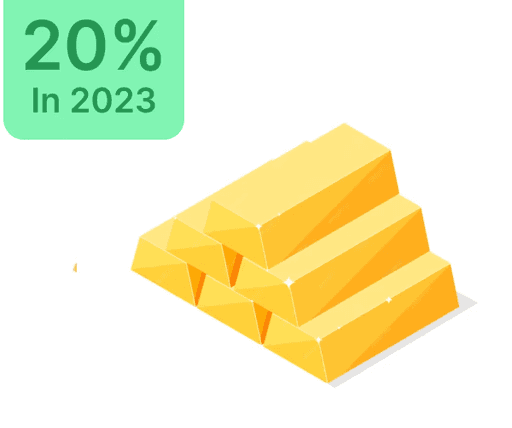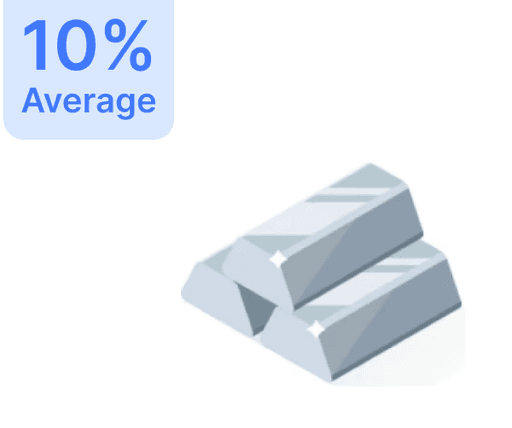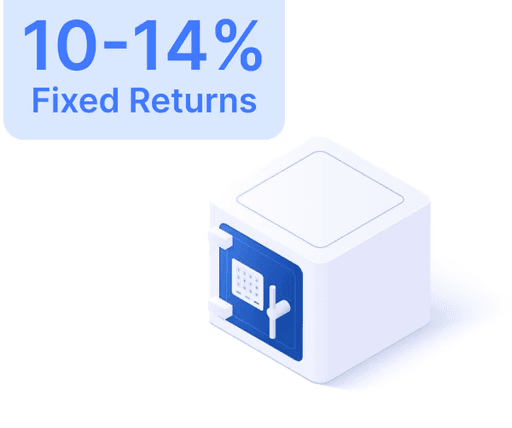Why are SBI SWIFT Codes Essential for Global Banking?

 Mar 13, 2024
Mar 13, 2024 15 Mins
15 MinsIn today's globalized economy, financial transactions have moved beyond local confines, becoming crucial to the international economic system. As we explore the essence of SWIFT codes, particularly those related to the State Bank of India (SBI), we find that these codes are pivotal for international trade, education financing, and family support.
The Role of SWIFT Codes in Global Connectivity
The SWIFT network exemplifies the advancements in modern banking, enabling banks worldwide to seamlessly communicate and conduct transactions. This system ensures that whether you are engaged in business, studying abroad, or sending remittances, your finances navigate the international banking channels effectively.
- Enhancing International Business: SWIFT codes empower businesses in global trade, providing a faster and more secure transaction framework. SBI's extensive network, using these codes, helps reduce delays, operational risks, and optimizes supply chain financing.
- Supporting Educational Goals: Students overseas depend on reliable financial flows for expenses. SBI's SWIFT codes ensure these transactions occur smoothly, aiding students in achieving their educational pursuits abroad.
- Facilitating Remittances: In a world where families span continents, quick and secure remittances are crucial. SBI's SWIFT codes ensure prompt delivery of support, helping maintain familial bonds across borders.
SBI's SWIFT Codes: Linking Local and International Banking
The State Bank of India uses a comprehensive array of SWIFT codes, positioning it as a leader in international transactions. SBI's global reach and use of advanced technology ensure that customers can perform international transactions smoothly and confidently.
- Utilizing SBI's Global Reach: SBI's widespread presence allows customers to leverage local expertise paired with global synchrony, thanks to its SWIFT codes, offering seamless banking services worldwide.
- Customized Financial Products: SBI provides tailored solutions for businesses, students, and families by utilizing SWIFT codes for efficient and secure banking services, including trade finance and educational loans.

The Future of International Transactions with SBI
The landscape of global transactions is rapidly changing, driven by technological progress and changing regulations. SBI's readiness to embrace innovative banking solutions and update SWIFT codes ensures it remains at the forefront of this evolution.
- Digital Transformation: The integration of digital platforms with SWIFT codes enhances transactional security and convenience, allowing customers to manage their international banking needs from any location, at any time.
- Regulatory Alignment: SBI ensures that transactions not only remain swift but meet global compliance standards, safeguarding customers in an evolving regulatory environment.
- Strengthening Alliances: Through global partnerships, SBI expands its network, enriching its SWIFT code ecosystem and facilitating smoother access to the global economy.
SWIFT codes play a key role in the infrastructure of major banks like SBI, driving international banking, commerce, education, and family connections in our interconnected world. As technology, standards, and networks expand, the importance of SWIFT codes in bridging local and global banking will continue to grow.
Understanding SWIFT Codes: Essential for Global Banking
SWIFT codes serve as the lingua franca of international banking, ensuring that funds arrive at their intended destinations correctly. These codes, consisting of 8 to 11 alphanumeric characters, identify banks globally, enabling them to efficiently process international transactions. For a bank like SBI, having a multitude of SWIFT codes allows it to offer diverse international banking services, such as remittances and business transactions.
Why is an SBI SWIFT Code Important?
- Security and Efficiency: SWIFT codes are crucial for secure, swift international wire transfers, ensuring that funds reach the correct destination bank.
- Global Recognition: Using SWIFT codes directly identifies any SBI involvement in international banking efforts.
- Error Reduction: Unique identification through SWIFT minimizes mistakes in global banking transactions.
Unraveling the Structure of SWIFT Codes
An SBI SWIFT code typically includes important identifiers:
- Bank Code: First 4 characters indicate the bank (e.g., SBIN for SBI).
- Country Code: Next 2 digits represent the country (IN for India).
- Location Code: Next 2 characters signify the location/city.
- Branch Code: Last 3 characters (optional) specify the branch.
For example, SBI's Bhubaneswar main branch has SWIFT code SBININBB270, representing State Bank of India in India, located in Bhubaneswar, with a specific branch code of 270.
Locating Your SBI SWIFT Code
To find the correct SWIFT code for your SBI transactions, consider these methods:
- Bank Statements: Review your statement for the SWIFT code.
- Online Services: Use SBI's online banking tools for details.
- Customer Assistance: Reach out to SBI's support for guidance.
- Official Website: Keep an eye on the SBI website for an updated SWIFT code list.
- Search Online Directories: Explore dedicated banking code resources.
Understanding and using SWIFT codes are crucial for any participant in international banking. For SBI users, knowing your bank's SWIFT code is fundamental to experiencing hassle-free international banking. As we progress, we navigate the complexities of locating and using different SWIFT codes for SBI branches, equipping you with knowledge for global banking success.

Mastering International Transactions with SBI SWIFT Codes
Building from our foundation of SBI SWIFT codes understanding, this section helps identify and ensure smooth international transactions by choosing the appropriate branch-specific SWIFT codes.
Branch-Specific SWIFT Codes: A Tailored Approach
SBI's unique assignment of SWIFT codes to individual branches enables precise international money transfers, directing funds accurately to intended branches.
Significance of Correct SWIFT Code Selection
- Accurate Transactions: Proper SWIFT codes guarantee that your international funds reach the planned destination without complications.
- Smooth Processing: Transactions process efficiently with accurate banking details.
- Increased Security: Unique codes enhance each transaction's safety by reducing fraud risk.
Discovering the Right SBI SWIFT Code for You
- Official Website: Start with SBI's official site, a valuable resource for branch SWIFT codes.
- Customer Services: Contact customer help for quick SWIFT code confirmation.
- Online Portal: Checking online SBI accounts often reveals linked SWIFT code details.
- Direct Inquiry: Visit branches and ask representatives for specific SWIFT codes.
Useful Tips for Using SBI SWIFT Codes
- Always Verify: Double-check every SWIFT code before a transaction.
- Branch Knowledge: For large sums, knowing the branch for specific remittances is imperative.
- Default to Head Office Code: When uncertain, use the head office's SWIFT code; however, for accuracy, find the precise branch code.
SWIFT vs. IFSC: Navigating International and Domestic Transfers
While SWIFT is needed for global exchanges, differentiating between this and IFSC for Indian domestic transfers is essential to enact the right code per transaction.

Conclusion and Future Directions
Armed with proper SBI SWIFT codes, you can confidently approach international banking. Following these steps streamlines finding and using SWIFT codes. In our series' next part, we will explore leveraging these codes to enhance transaction speeds, ensuring you navigate international finance smoothly, whether you're an experienced trader or new to international transfers, the mastery of SWIFT codes is crucial.
Navigating Global Finance with SBI SWIFT Codes
This final piece on SBI SWIFT codes emphasizes advanced strategies for effective global finance management. Let's equip you with the advanced tools for managing international banking.
Optimizing International Transactions
Proper use of SWIFT codes enhances transaction efficiency and security. Here are some strategies to improve your global operations:
- Preparedness: Gather necessary SWIFT code information to avoid delays or issues.
- Security Checks: Confirm the SWIFT code's validity via bank or third-party sources.
- Online Tool Utilization: Employ SWIFT code verification platforms to ensure accurate identification.
Benefits of Correct SWIFT Code Utilization
- Minimized Delays: Accurate identification leads to faster processing.
- Lowered Costs: Error-free transactions mean avoiding extra fees.
- Established Trust: Secure and correct transactions foster trust among parties.
Beyond Banking: SWIFT's Role in Global Communication
Beyond transactions, SWIFT codes ensure that bank communications are accurate and timely, preserving the reliability of worldwide financial communications.
The Future of Banking with SBI
In a more interconnected world, SWIFT codes' relevance in finance grows. SBI's extensive catalog of branch SWIFT codes illustrates its dedication to global commerce facilitation. Understanding these codes maximizes your potential in SBI's international banking services.
Key Insights and Closing Thoughts
- Accuracy is Vital: Utilize the precise SWIFT code for transaction efficiency.
- Stay Updated: Keep informed on SWIFT codes and global banking trends.
- Utilize SBI Resources: Make full use of SBI's support systems to optimize international transactions.
Concluding our series, SWIFT codes are vital tools in international finance. Mastering their usage enables robust global interaction, benefiting from SBI's infrastructure and support. Whether an individual or business, skill in navigating international banking complexities is a critical advantage in today's economy. Always stay informed, as finance evolves continuously, making knowledge a key asset in international banking ventures with SBI.
*[TDS]: Tax Deducted at Source *[PIN]: Personal Identification Number *[OTP]: One Time Password





